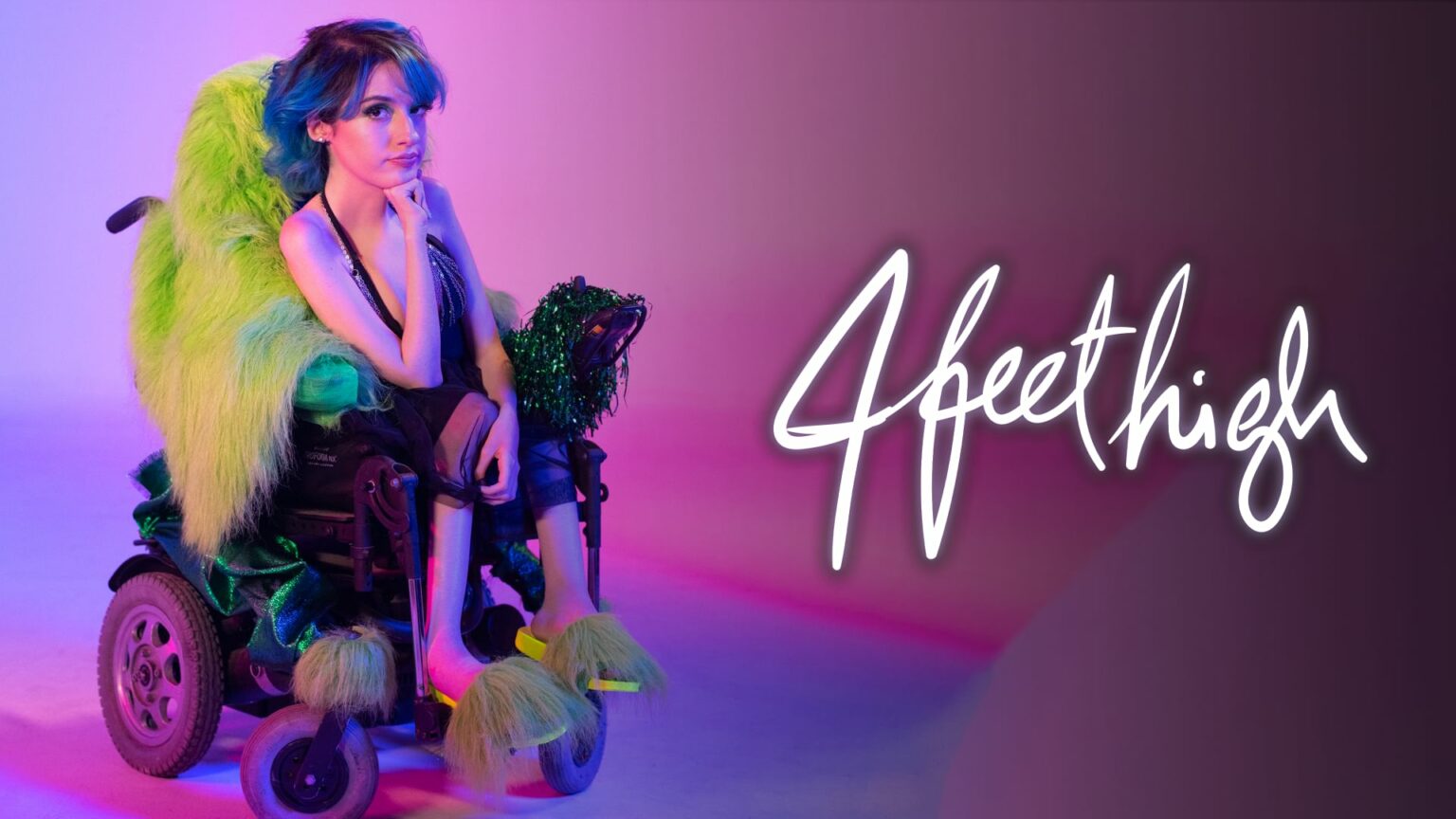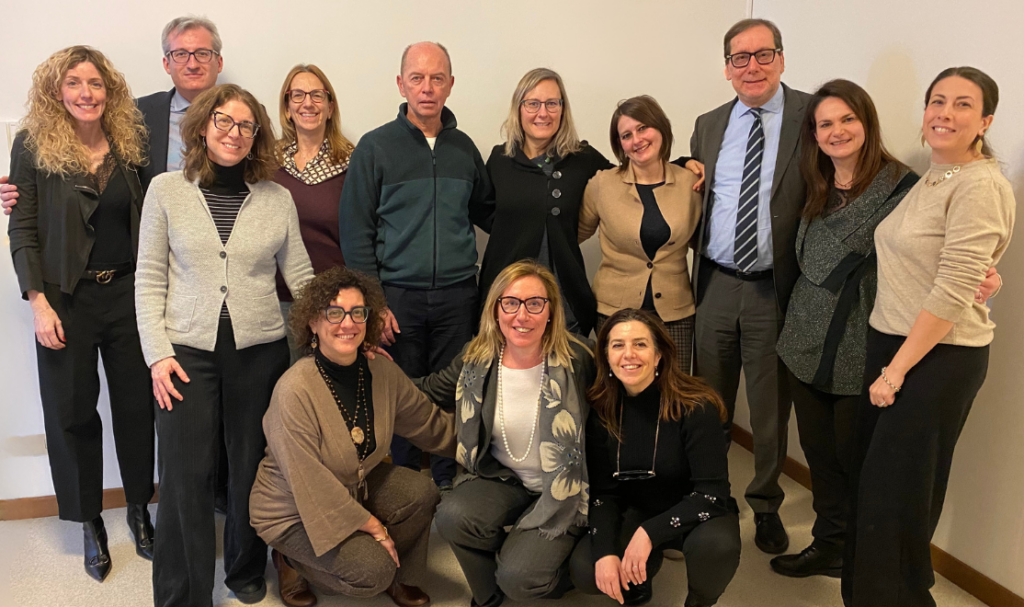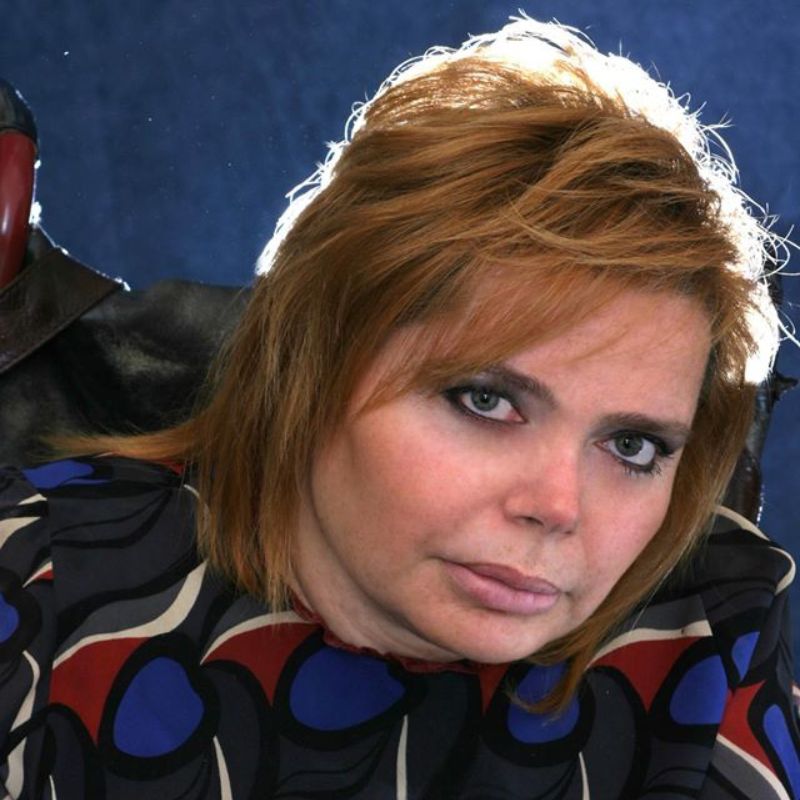Intervista e traduzione a cura di Silvia Lisena
“4 feet high” è una serie argentina che narra le vicende di Juana, attivista in carrozzina diciassettenne che frequenta una nuova scuola e deve destreggiarsi tra nuove amicizie e la lotta contro la mancanza dell’insegnamento dell’educazione sessuale. Sarà proprio questo che alimenterà la voglia di autodeterminarsi e di prendere piena consapevolezza della propria identità per cercare di creare una società veramente inclusiva. Abbiamo parlato con la protagonista della serie, Marisol Agostina Irigoyen, che anche nella realtà è in carrozzina: ecco cosa ci ha raccontato sul suo debutto e sul tema della disabilità nello showbiz e nella vita quotidiana.
Per iniziare, chi è Marisol?
Sono un’attrice, illustratrice e scrittrice. Mi piace raccontare storie con ogni mezzo possibile. Ho 28 anni, vengo da Buenos Aires e sono in carrozzina.
Quando hai deciso di diventare un’attrice? È stato difficile per te entrare nel mondo dello spettacolo?
Sembra strano ma non è una cosa che ho deciso all’inizio. Quando ero piccola, ho provato a prendere lezioni ma il mio insegnante riteneva che la recitazione fosse una “forma d’arte fisica” e quindi non adatta a persone con disabilità. Durante l’adolescenza ci riprovai, ma nuovamente non riuscii a continuare. Così mi sono arresa finché su Instagram non ho visto la pubblicità del casting per “4 feet high” dove cercavano specificatamente attrici con disabilità. Non ci potevo credere! Ho colto al volo l’opportunità e ne è valsa la pena. Adoro il cinema, ma prima di “4 feet high” non avrei mai pensato che una persona con disabilità potesse davvero entrare in quel mondo.
Quali sono le analogie e le differenze tra te e Juana?
Penso di condividere con lei molte emozioni e approcci su certi temi, ma siamo molto diverse nel modo in cui le esprimiamo. Lei è molto assertiva, si arrabbia a gran voce e non ha paura di esprimere la propria opinione, mentre io sono piuttosto contraria al conflitto, anche se recentemente sto imparando a trovare una giusta strategia per affrontarlo invece di evitarlo del tutto. Ma sì, diciamo che Juana non ha paura di alzare un po’ la voce, mentre io posso anche farne a meno. Infatti è proprio questo aspetto che ho trovato più difficile nell’interpretare il personaggio: mostrare apertamente la rabbia. Penso sia fantastico che un personaggio con disabilità esprima questo tipo di sentimenti sullo schermo, perché mi sembra che ci sia l’idea che noi persone con disabilità non possiamo esprimere la nostra rabbia, che dobbiamo censurarla. Mi piace l’idea che Juana riesca a farlo, anche quando ha torto, perché a volte è solo attraverso il conflitto che possiamo crescere e capire cosa vogliamo.
Secondo te, nel 2022 per una persona con disabilità, specialmente se è donna, è ancora difficile vivere la propria sessualità? Per te lo è stato?
In realtà credo che questo sia il momento più adatto in generale per le persone con e senza disabilità. So che le app di incontri hanno una reputazione negativa, ma possono essere un ottimo modo per conoscere gente senza che ci sia da subito una pressione sociale: io stessa ho fatto molte esperienze sulle app proprio perché è semplicissimo uscire con qualcuno, ma possono dare vita anche a una relazione seria, infatti così ho conosciuto il mio attuale ragazzo. Certo, c’è ancora tanto pregiudizio e ci si può imbattere anche in persone sgradevoli, ma basta semplicemente evitarle.
Io sono cresciuta in una famiglia molto religiosa, quindi la mia indipendenza e la mia libertà erano molto limitate, ho dovuto lottare a lungo per fare ciò che volevo e, come ho detto prima, non mi piacciono i litigi, le urla e tutta quella roba. Immagino che sia difficile per molte persone con disabilità, perché a volte dover dipendere fisicamente da qualcuno rende difficoltoso avere un po’ di privacy o prendere decisioni in autonomia. Ma è un nostro diritto, abbiamo il diritto sui nostri corpi, sulle nostre decisioni e persino sui nostri sbagli, come chiunque altro, e dobbiamo lottare per rivendicarlo. Questo non significa che non siamo grati di ciò che abbiamo o che non apprezziamo la nostra famiglia (questa è una cosa che un dottore mi ha detto, che non apprezzavo la mia famiglia dal momento che desideravo avere rapporti sessuali con i ragazzi. Ecco, il pregiudizio ancora esiste!), ma significa semplicemente che abbiamo i nostri desideri e la nostra vita al di là di tutto.
Secondo te, a scuola come si potrebbe parlare di educazione sessuale in modo più ampio, includendo anche le persone con disabilità?
Penso che si potrebbe iniziare dal dire che il tuo corpo appartiene solo a te, a prescindere da quanto dipendi fisicamente da qualcun altro, e tu hai il diritto di apprezzarlo e di avere la tua privacy e la tua intimità. E inoltre bisogna insegnare che tutti i corpi hanno un aspetto diverso e funzionano in modo differente, così vale per quelli delle persone con disabilità.
Com’è stato partecipare al Sundance Film Festival?
Purtroppo, a causa della pandemia, siamo potuti essere presenti soltanto virtualmente. È stato comunque strabiliante il fatto che la nostra prima apparizione sia stata all’interno di un festival così famoso e in mezzo a tanti film di grande portata.
Quali sono i tuoi progetti per il futuro?
Onestamente non ne ho idea. Sto scrivendo e sto disegnando molto. Vorrei che la mia arte riflettesse la mia disabilità per partecipare a progetti in cui la disabilità venga vista come una normale parte del mondo. E mi piacerebbe anche continuare a recitare, sarebbe fantastico.
ENGLISH VERSION
“4 feet high” is an Argentine series that tells the story of Juana, a 17-year-old wheelchair activist: as she attends a new school, she’s into juggling new friendships and fighting against the lack of sex education teaching. That helps her getting self-determined and fully aware of her own identity in order to create a truly inclusive society. We talked to the main star, Marisol Agostina Irigoyen, who is a wheelchair girl in real life: here’s what she told us about her debut and about disability in showbiz and in everyday life.
Tell us who is Marisol. How would you describe yourself to our readers?
I am an actress, an illustrator and a writer. I love storytelling and want to do it through which ever medium is at hand. I’m a wheelchair user, I’m 28 years old and from Buenos Aires.
When did you decide to become an actress? Has it been difficult to enter showbiz for a disabled woman just like you?
It’s kind of funny but it wasn’t something I decided early on at all. When I was little I tried taking classes but the teacher thought that since, according to him, acting was “such a physical art” he shouldn’t teach to disabled students. Then later I tried taking classes again when I was a teen but couldn’t keep going because of my schedule. Then I didn’t think of acting again until I saw an add on Instagram for the casting call for “4 feet high”. They were looking specifically for disabled actresses and I couldn’t believe it. I took the chance and it was worth it. I love cinema so much, but prior to “4 feet high” I never thought a disabled person could really get a job in the industry.
What are similarities and differences between you and Juana?
I think her and I share a lot of feelings and the way we relate to certain experiences, but we are definitely very different in terms of how we express those feelings. Meaning she is very assertive, she gets angry out loud and is not afraid to speak her mind (even whilst figuring out what it is she thinks about something); and I am rather averse to conflict, although this past years I’ve been learning to better deal with it without avoiding it. But yeah, in short, she’s not afraid of a bit of shouting, I rather go without it.
It’s funny because when training for the role that’s what I found most difficult: getting visibly angry. I think it is fantastic to have a disabled character who gets to express those feelings on screen, because I think sometimes disabled people can feel like we can’t express our anger, like we have to censor it. I like that Juana gets to do that, even in the points where she is the one in the wrong, because sometimes it’s only through conflict that we can grow and figure out what we want.
In your opinion, is it a lot difficult to experiment his own sexuality for a disabled person, especially for a disabled woman, yet in 2022? Has it been difficult for you too?
I actually think is the best of times for sexual exploration, for disabled people and in general. I know dating apps get a lot of bad reputation, but they can be a great way to meet people without the pressure of the more immediate social circle and apps are the medium through which I did most of my, erm, exploring. Never has randomly hooking up with random people been easier. But I also met my boyfriend through an app, so you can’t rule out more serious stuff either.
Of course there is still a lot of prejudice and there are some pretty nasty people out there, it’s a matter of not dating those I guess.
Also, in my case, I grew up in a very religious household and the matter of independence and and freedom was very difficult, I had to fight a lot to do the stuff I wanted to do. And like I said, I dislike fights and shouting and all that stuff. I imagine this must be difficult for a lot of disabled people, since physical dependence can make it difficult for us, sometimes, to have our privacy and make our choices. But it’s a right, we have a right over our own bodies, to make our choices, and our mistakes too, like everybody else, and we have to try and fight for that right. That doesn’t mean we aren’t grateful or we don’t love our family (which is something a literal doctor told me, that I didn’t love my family for wanting to have sex with guys. So yeah, prejudice still exists.); it just means we are our own people with our own desires and lives.
In your opinion, how could school make a better sex education in which disabled people are included?
I think starting with the idea that your body is your own, no matter how much you physically depend on other people, and that you have a right to enjoy it, and to your own privacy and intimacy. Also, the idea that bodies all look and work differently and that includes disabled bodies.
How was joining Sundance Film Festival?
Sadly we could only join virtually since the pandemic happened. But it was mind blowing to have our premiere happen in such a famous festival and in the context of so many amazing films.
What are your plans for the future?
To be honest, I’m not sure. I’m writing and drawing a lot. I’m learning that I want my art to reflect the disabled experience, that I want to aim to be part of visual and narrative spaces where disability is a portrayed as a normal and natural part of life. I would love to act again, too, that’d be amazing.




